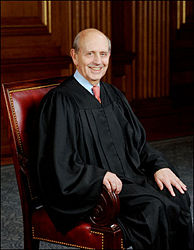Links to New Law Review Articles
Articles from the latest issue of the Marquette Law Review are now available here. Here is what you will find:
Nantiya Ruan, Accommodating Respectful Religious Expression in the Workplace.
Scott A. Schumacher, MacNiven v. Westmoreland and Tax Advice: Using Purposive Textualism to Deal with Tax Shelters and Promote Legitimate Tax Advice.
Michael W. Loudenslager, Giving Up the Ghost: A Proposal for Dealing With Attorney “Ghostwriting” of Pro Se Litigants’ Court Documents Through Explicit Rules Requiring Disclosure and Allowing Limited Appearances for Such Attorneys.
Barbara O’Brien & Daphna Oyserman, It’s Not Just What You Think, But How You Think About It: The Effect of Situationally Primed Mindsets on Legal Judgments and Decision Making.
Joan Shepard, Comment, The Family Medical Leave Act: Calculating the Hours of Service for the Reinstated Employee.
Charles Stone, Comment, What Plagiarism Was Not: Some Preliminary Observations on Classical Chinese Attitudes Towards What the West Calls Intellectual Property.


